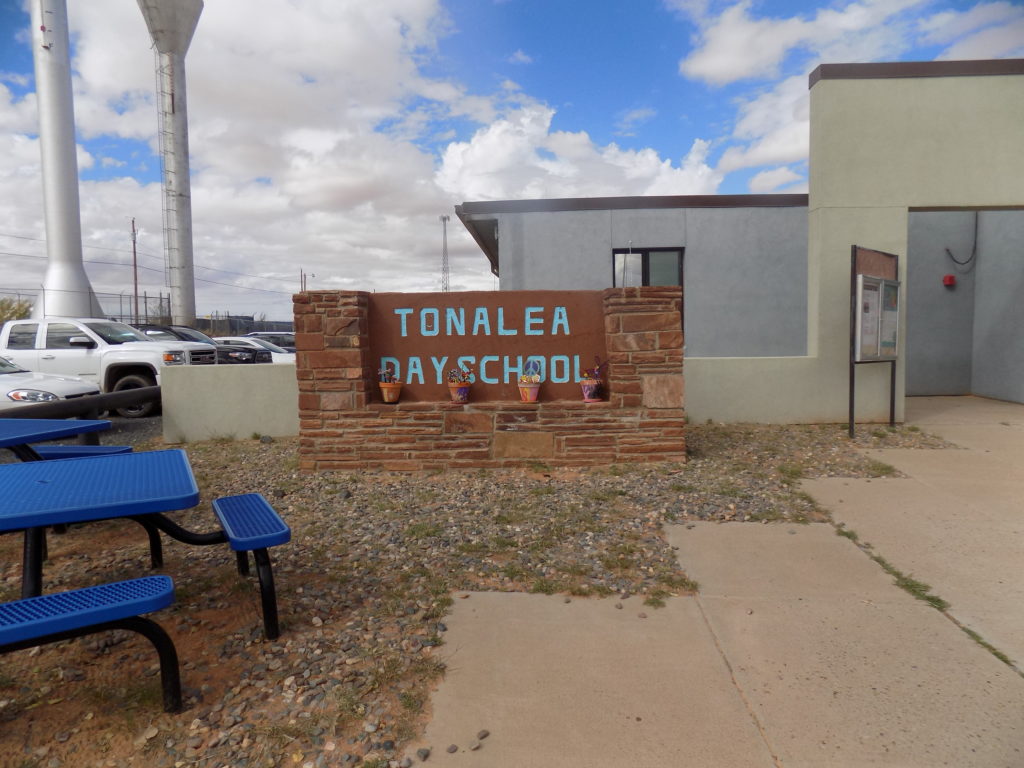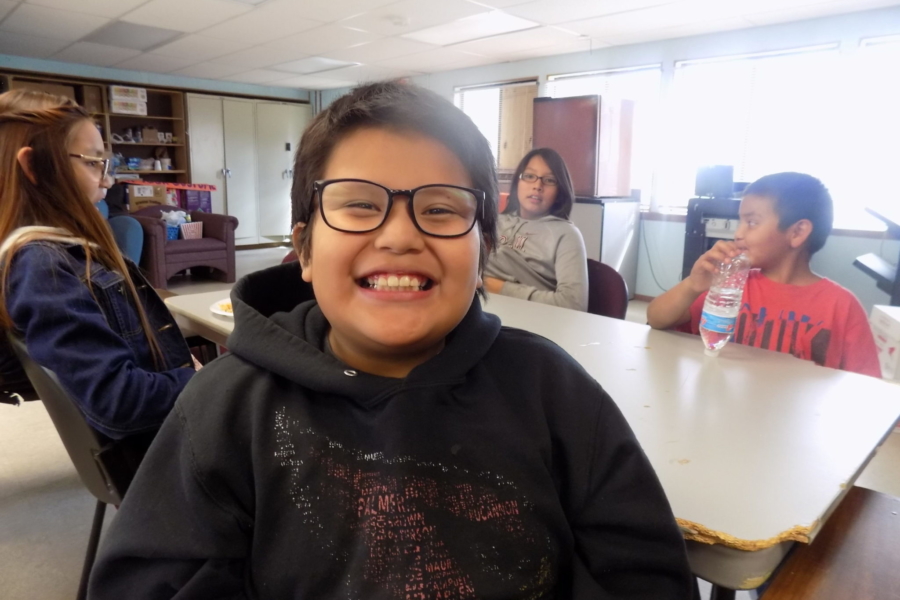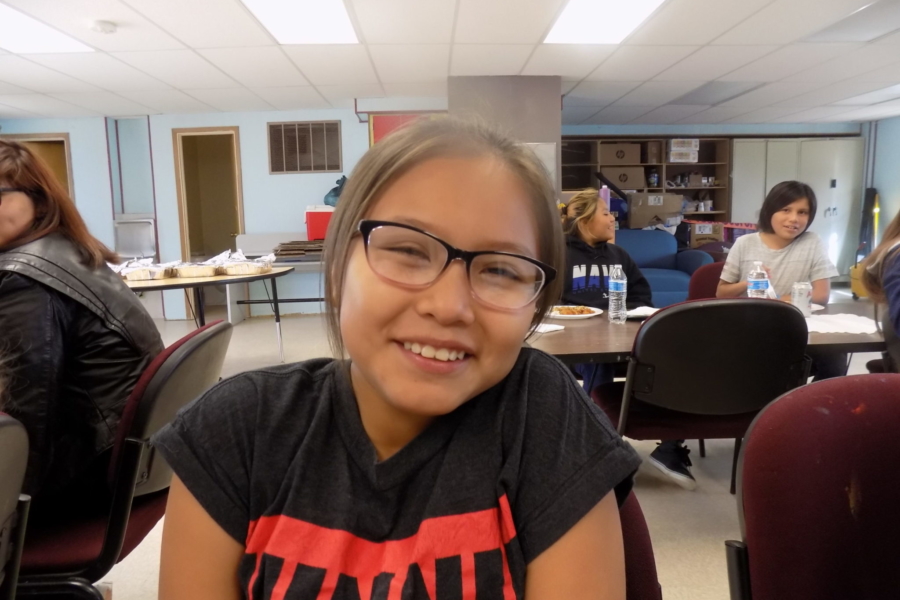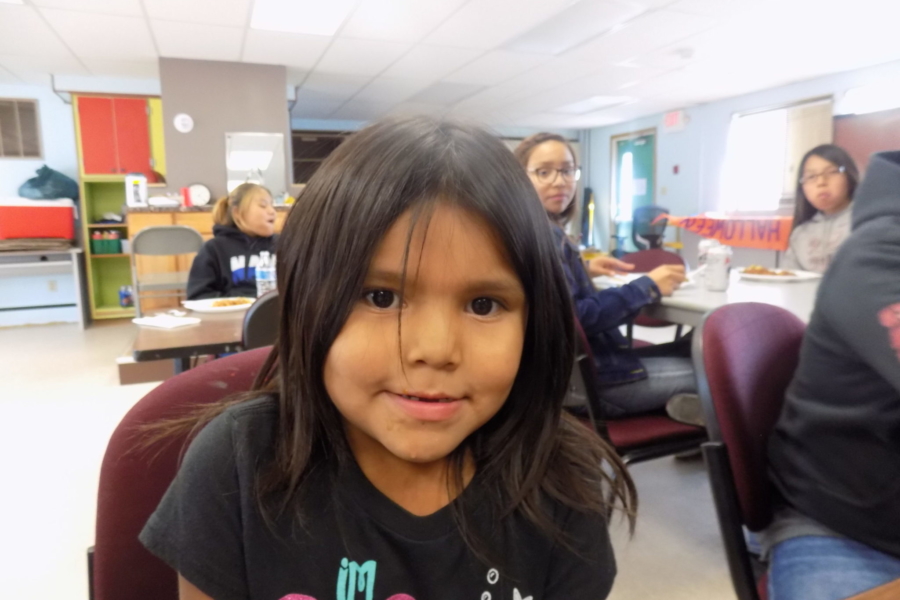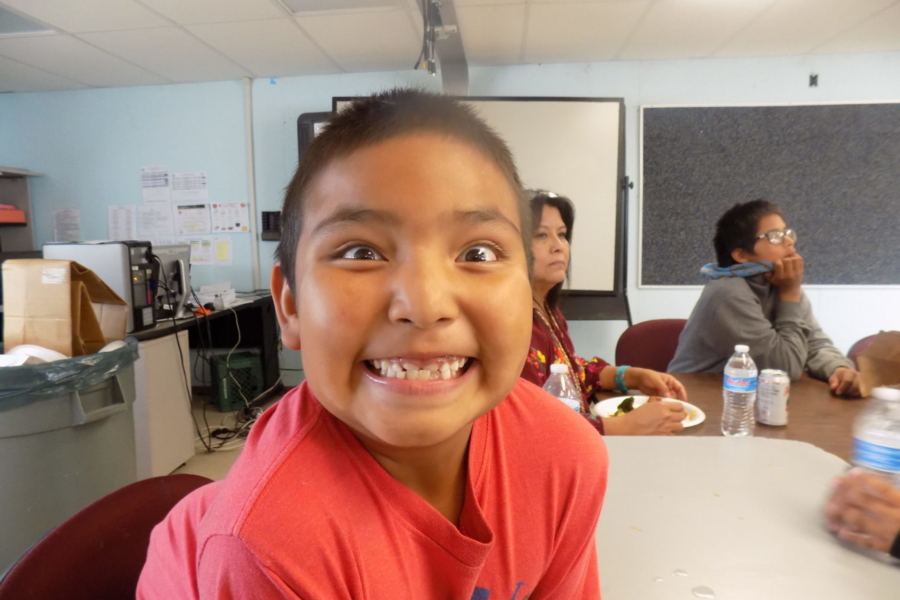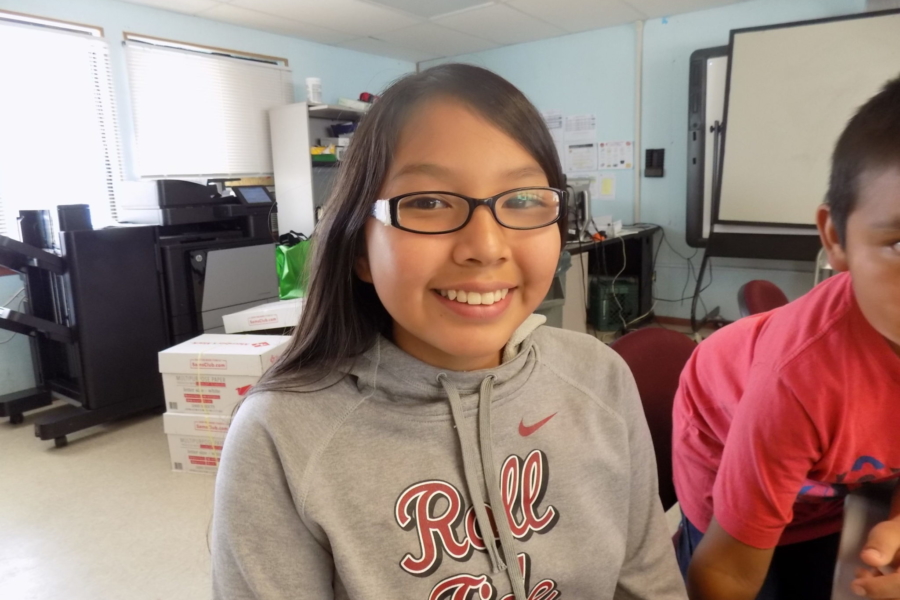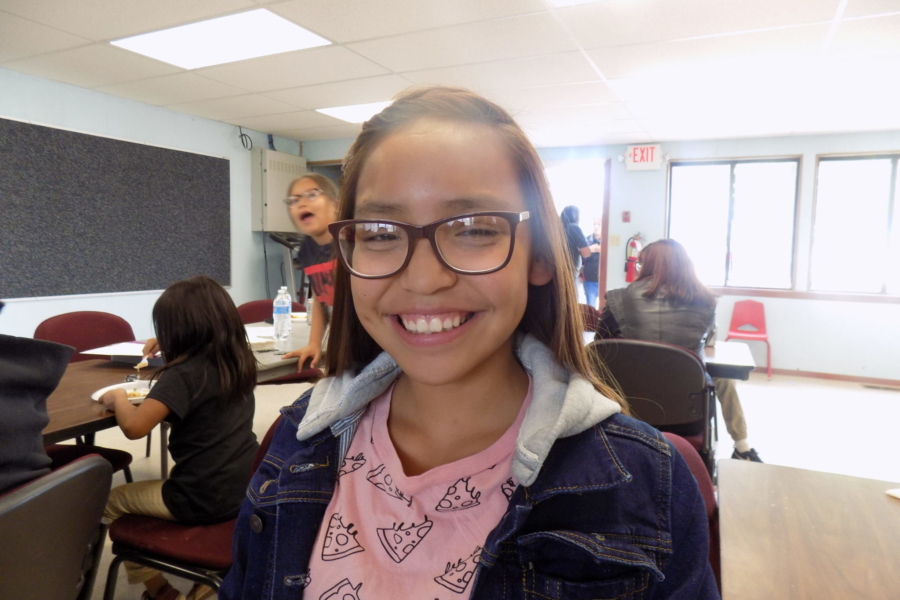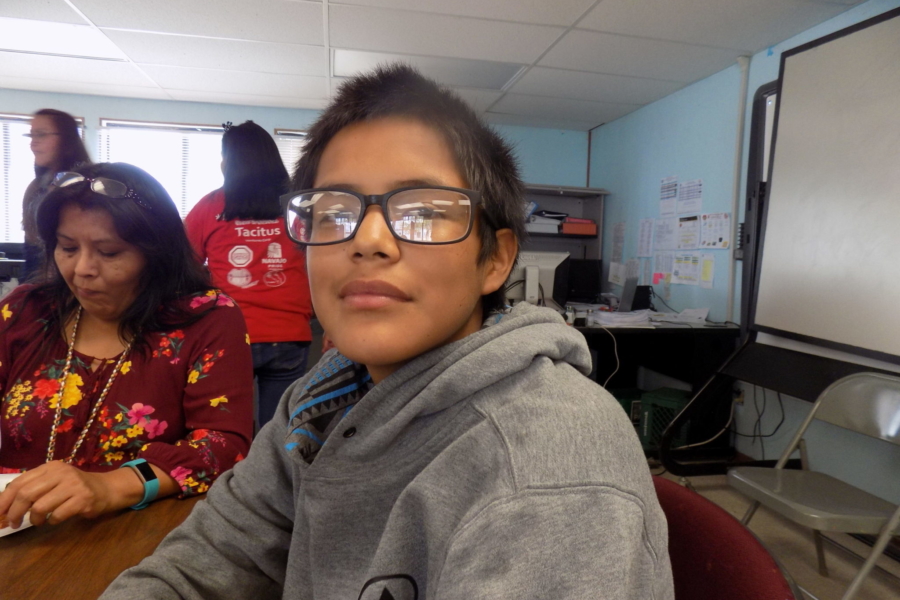*Note: This blog was written prior to the COVID-19 pandemic. Although much has changed regarding our sponsored children’s learning experience in the past months, our On the Road stories remain relevant in regards to our volunteer coordinator’s work and the impact of sponsorship on children in our program thanks to our sponsors. We are pleased to continue to share stories with you about our work.
***
Situated in northern Arizona, the remote community of Tonalea (a Navajo word meaning “Red Lake”) is surrounded by a stark and mysterious landscape, created by sandstone mesas that rise from the barren desert floor.
It is here that a Navajo school called the Tonalea School, and our affiliated project, functions within the boundaries of a Navajo Indian reservation — a reservation rich in culture but desperately poor.
Today, there is virtually no employment in Tonalea. To develop economically, the community is trying to attract more tourism.
A history of Tonalea
Tonalea’s population has dwindled since 1974 when the U.S. government divided land in the region between the Navajo and Hopi tribes. Many Navajo families suddenly found themselves living on Hopi land without many rights. Navajo families were not allowed to even fix up their dilapidating houses without the approval of the Hopi Tribe or the Bureau of Indian Affairs. Subsequently, Navajo families moved away to try to find a better life for themselves.
Today, there is virtually no employment in Tonalea. To develop economically, the community is trying to attract more tourism.
Tribal women weave beautiful “storm pattern” rugs that are favored by collectors and sell them at local trading posts. With permission from the Arizona Department of Transportation, Tonalea community members are working to gain the right-of-way to a natural attraction, a rock formation known as “The Elephant Feet,” that could easily bring more tourism and create jobs within the town. Although having the potential to generate income for locals, the slow progression of these options in building up the community means the community currently remains trying to strive while living in abject poverty.
The Tonalea School
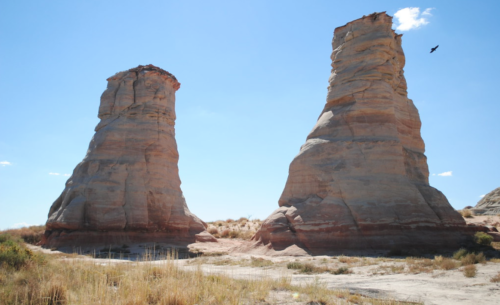
The famous Elephant Feet rock formations
Located in an older school building that the maintenance staff works hard to maintain, the Tonalea School serves around 200 children from kindergarten through eighth grade.
Our volunteer coordinator, Linda, works as the school secretary. She knows the families of the students — including those of our sponsored children — very well.
“Linda is fortunate to have the support of the school’s principal, Mrs. Kaye, who appreciates the Children Incorporated program. Principal Kaye gives Linda time to handle the responsibilities of running our sponsorship program, and flexibility in her schedule to go on shopping trips for sponsored children,” said Renée Kube, our Director of U.S. Programs.
While Renée was visiting Linda at Tonalea School, Linda gave her a tour of the building and grounds. She told Renée that in addition to shopping for the sponsored children, she also uses sponsorship funds at the school’s book fair. Otherwise, children wouldn’t ever have any new books to take home to read over winter or summer breaks.
A special lunch for Renée
Linda took Renée on a tour of the school, which ended at a trailer across the staff parking lot.
When they entered the trailer, Renée was greeted by our sponsored children sitting around tables waiting for her and Linda. Linda had surprised Renée with a special lunch with the kids. After they sat down, two staff members wheeled over carts of foil containers with fried rice, beef with broccoli, and pork lo mien.
During the lunch, Renée had a chance to get to know some of our sponsored children. She met with Nicole*, who is in the sixth grade. Nicole talked about how much she liked science and liked to draw.
About 40% of families do not have running water in their homes. Instead, they may travel many miles with five-gallon buckets and spare containers to a community well to collect water.
Renée also spoke to Rodney*, who is in the second grade. Rodney likes math and reading and is happy and funny. Renée could tell he was a bit of a “class clown.” After the lunch was over, Linda and Renée went to Linda’s office to talk.
Linda told Renée that Rodney has a brother and three sisters. His father is a welder and does not have steady employment. At the end of each job he gets, he is laid off until the next time there is work available. Rodney, his siblings, and his parents live in a small house that has electricity but no running water.
Too many families without water
Renée was discouraged to hear about Rodney’s family not having running water, but she also knew that it was not uncommon on the Navajo Reservation. About 40% of families do not have running water in their homes. Instead, they may travel many miles with five-gallon buckets and spare containers to a community well to collect water. In some cases, the families may have a water barrel or two for storage outside of the home, and they can arrange for delivery from a water truck, but they have to be able to afford to pay for the water.
“Most people in the United States take for granted their source for clean potable water for cooking, cleaning, bathing and drinking,” said Renée.
“For many of our families on the Navajo Reservation, every use of water must be weighed, and every use of water is stretched. For example, water used for rinsing clean dishes will be used again to wash dishes from the next meal.”
*Names changed to protect the children.
***
Due to the generosity of our sponsors, all of our enrolled Native American children are currently matched. However, we have many other U.S. children who are in need of a sponsor’s encouragement and support. You may also wish to consider a donation to our Covid-19 Response Fund or one of our other special funds at this time. Please feel free to contact us for further information.
HOW DO I SPONSOR A CHILD?
You can sponsor a child with Children Incorporated in one of three ways: call our office at 1-800-538-5381 and speak with one of our staff members; email us at sponsorship@children-inc.org; or go online to our donation portal, create an account, and search for a child that is available for sponsorship.

